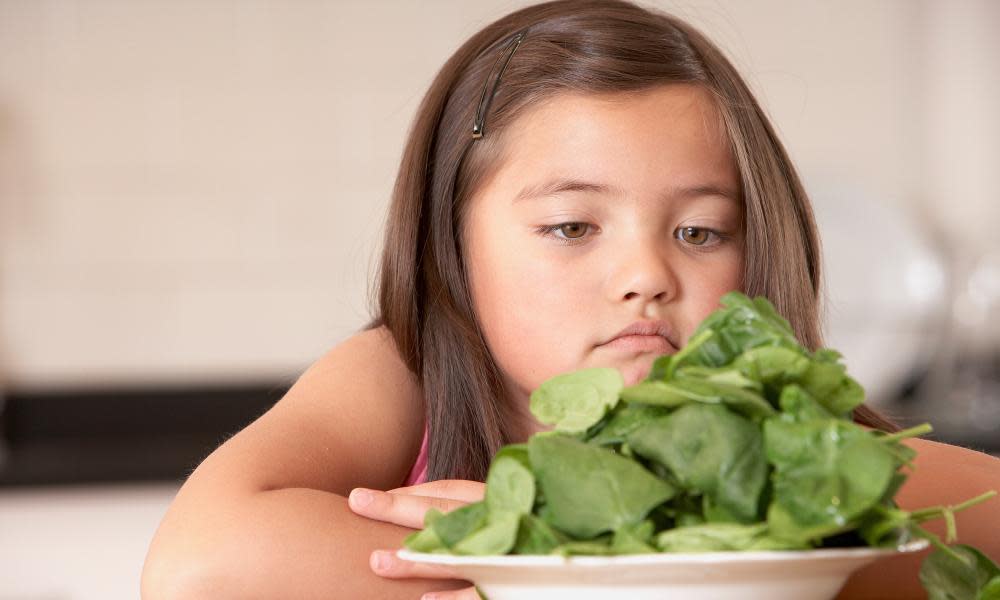Britain's obesity strategy ignores the science: dieting doesn't work

Being overweight has never just been about the amount of calories you consume. The government’s new obesity strategy, which includes mandating calorie displays on menus, banning junk food adverts before 9pm, offering Weight Watchers discounts and ending discount deals on “unhealthy” foods, reflects the widely held misconception that weight loss can be achieved by restricting calories and fat. The reality is that tackling obesity requires a far greater rethink of our fraught relationship with eating – starting with the food and diet industry.
From keto to paleo, superfoods to juice cleanses, clean eating and raw diets, we’ve been confronted with a dizzying array of dieting advice in recent years. But, as with the widespread belief that calorie intake is directly proportional to weight gain, most of this information is completely useless. Indeed, the rate of recidivism with all diets is an estimated 97%. That figure should give the government pause for thought. Of every 100 people who diet, an estimated three will manage to keep the weight off in the long term. Why is the government ignoring this evidence?
Rather than mandating calorie labelling, the government should be worrying about what goes into many processed foods and ready meals. Mucking around with food has unintended consequences. The extra ingredients and chemical enhancers that make food tastier have none of the nutritional value found in normal food groups. These additives are directed at “bliss points”, the manufacturing name given to the amount of sugar, salt and fat that optimises flavour in a product. Nutrient low and additive rich, these foods encourage us to override our natural sense of when we’re full, manipulating our appetites and leading us to eat more.
In the 1980s, when low-fat products and desserts flavoured with sugar and artificial sweeteners first entered the market, they were deemed healthier than their full-fat alternatives. But what first appeared helpful caused confusion: evidence showed that the body didn’t metabolise these products in the same way as full-fat alternatives, and people who consumed low-fat foods were likely to replace the lost fat with calories from carbohydrates.
People trying to lose weight for aesthetic reasons found that by restricting their calorie consumption with low-fat alternatives, they were interfering with their body’s delicate “set point”, the weight range that our bodies are genetically and biologically predisposed to maintain. And some have found that continual calorie restriction can paradoxically lower your metabolic “thermostat”, meaning your body works harder to decrease the rate at which you burn calories. Restricting the number of calories you consume often means the pounds go on, not off.
Preventing obesity and encouraging the population to be healthier will require far more than banning two-for-one offers on sugary snacks or junk food adverts before 9pm. We’ll need to completely overhaul our troubled relationship with eating. Talk of “good” and “bad” foods has contributed to an obsession with size and weight loss. The food industry has stoked these anxieties, stigmatising fat and calories while selling us low-fat alternatives without the same nutritional value. It’s no surprise that disordered eating is rampant. What’s needed is a more holistic approach to food, where people are encouraged to eat food groups in balance and nutritious food is available to everyone.
Related: 'Eat Out to Help Out' risks undermining obesity campaign, say experts
Food is the medium of our first relationship. As we are welcomed into the world, we are held, cuddled and fed. We first associate food with safety and love. Babies turn their heads away from their mother’s breast or bottle when they’ve consumed enough. They show when they’re next hungry. With luck, their physical prompts are met with food, creating the feeling of bodily security. Children’s early relationships with eating are integral to the patterns they later develop as adults. At school, talk of food and fat can imbibe confusion about eating, while stories of nurseries banning birthday cakes sends a message that some foods are dangerous. Now, the pressures of social media, with children posing for selfies and plastic surgery apps targeting young girls, have amplified anxieties about size and appearance and distorted people’s eating patterns and relationships with food.
We should be encouraging people to be healthy and fit. But a better and more viable place to start would be to help people understand what food means to them, both individually and culturally. We need messaging that encourages people to eat when they are hungry and to savour every mouthful so they can stop when they are full. We should stop stigmatising fat and calories, and encourage people to recognise that their body has a naturally predisposed weight. Understanding what we’re wanting and feeling if we’re drawn to eating when we aren’t physically hungry is the key to eating happily. We know this approach works considerably better and more permanently than dieting, enabling people to stay healthier over the longer term, but it gets little airtime compared with dieting fixes.
Eating sustainably for our bodies, our emotions and the planet requires serious political will. It begins by taking on the huge food and diet industries and curbing the production of foods that that are designed to override our body’s needs and signals. Only then can our relationship with food become a healthier one.
Susie Orbach is a psychotherapist, psychoanalyst, writer and social critic


